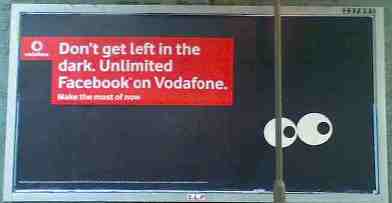The impedance effect of the mobile industry
I’m an Engineer from way back, so for me the concept of impedance refers to
“the effective resistance to an alternating electric current arising from the combined effect of ohmic resistance and reactance“.
Translated – it means things and people getting in the way.
As some of you know, I present at conferences and speak to people in the mobile industry a lot (and I love it). Recently I have been doing some “hand waving” trying to condense the mobile industry into 3 discrete blocks from diagrams like this one.

On the left hand side you have the brands and advertisers – the ones with the money trying to connect with those on the right – the consumers with a mobile phone. In the middle – that’s the rest of us. All mobile related businesses, the mobile operators, social networking sites, handset manufacturers, location providers, and mobile advertising companies.
We’re all an impedance to the brands and advertisers getting their message to the consumer. It’s right that we’re in the way – in most case we claim to “add value” and also extract some of the value along the way to pay the bills – that’s business.
The impetus for this post was the Mobile Monday event earlier this week in London. There have been 3 excellent writeups from Pudding Relations, David Wood and mjelly so I won’t add more impedance to your reading – but one of the common themes was “how will we make money from this?”.
One of the most thought provoking questions of the night came from Jonathan Macdonald – my voice of reason who was literally sitting behind me (and he has become a voice in my head…). Jonathan is ex Blyk, the 16-24 year old MVNO here in the UK and he is now with Ogilvy One, advising many of the CEO’s of the WPP group about their mobile strategy – so he knows a thing or two about this space. Jonathan’s question made me look at all the great presentations from the night about location and wonder – but who’s making any money here?
One of the speakers on the night, Mark White from Locatrix summed it up perfectly when he said “Can do doesn’t mean can make money’“. Bingo!
More importantly, and the main theme of this post is that like other industries, we in mobile are in danger of believing our own wonderful hype. Conference after conference, presentation after presentation people are talking about their latest and greatest widget, without answering the question – “how will this lower the brand’s impedance?” – ie how will this help the brands spend more of their dollars, pounds, euros, roubles or yen in getting to the humble consumer on their mobile.
Try this at the next conference you attend. Take one or two examples from the session before the break – go out to the hotel lobby and ask the front desk staff, or the concierge if he or she has first heard of the service promoted, and secondly would the use it. If the answer is no, then the impedance value goes up.
If you’re not going to a conference soon – try this instead. Ask someone in the office, in your building or in your street who does not work directly in mobile “do you use the internet on your mobile?”. If you get a blank look or anything less than “of course actually I use Opera mobile 8.65 for a better browsing experience”, then ask “do you use Facebook on your mobile”. If the answer to this is yes then QED!

The reason why Vodafone has conducted a huge above the line campaign recently for “Unlimited Facebook on Vodafone” is because by using a well known brand such as Facebook and having it as the hero makes perfect sense. Consumers “get” Facebook. It is an easy jump to them “get it” on the mobile.
As an industry, let’s at least be aware of the impedance we create to advertisers – and keep challenging the propositions – would anyone use this? Will we make money out of this?
Impedance is good – but not if it slows things down for a whole industry trying to get of the ground.